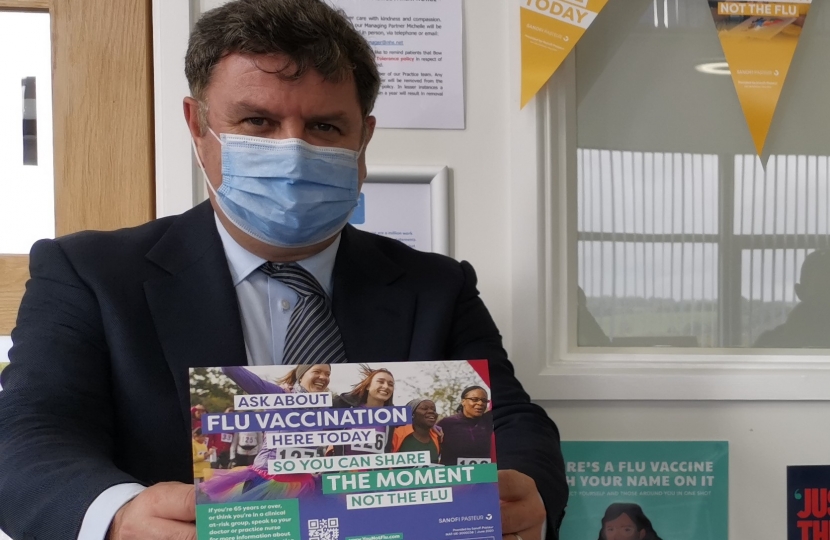
I recently visited a local surgery to promote flu vaccinations as the Government aims to vaccinate 30 million people – the largest flu drive in our history. This will be carried out in two phases – firstly those who are usually eligible (e.g. the over-65s, people with long-term health conditions and primary school children), and then all 50 to 65-year-olds. It is especially important to get the jab this year because we need to ease pressure on our NHS and urgent care services this winter and because evidence suggests that co-infection of flu and Covid-19 doubles fatality rates.
The Prime Minister has set out a three-tier system of Covid-19 restrictions. At the time of writing, the whole of the South West is in the lowest tier, which means that we must follow the rule of six and that pubs and restaurants need to close at 10pm. I strongly support this regionalised approach. Nottingham, Liverpool and Newcastle for example have more than 500 cases per 100,000 people whereas the four local authorities that cover our Central Devon constituency (Teignbridge, Mid Devon, West Devon and East Devon) are all around 50 cases per 100,000 people (0.05%). While I have great sympathy for people living in these cities, it does not make sense to impose equal restrictions on different parts of the UK when infection rates are far lower.
The UK economy has taken a massive hit due to the pandemic and needs every business that can be trading safely to do so. Forcing more businesses to close than necessary will hurt those businesses, lead to more job losses and reduce much needed tax revenues. These are important factors to consider because while Covid-19 is first and foremost a public health crisis, lockdowns and other restrictions must be assessed within the context of wider economic and social consequences. Someone losing their business or their job matters too and we will only be able to fund the public services we all rely upon if the economy comes back.
Greater restrictions also have an impact on other health problems. During April to June 2019 there were 594,060 urgent cancer referrals by GPs but during the same period this year there were only 339,242 – a fall of 43%. With early diagnosis key to beating cancer, this is an alarming statistic. Restrictions have also led to increases in domestic violence and mental health problems, to more children being taken into care and sufferers of dementia rely on social activities to slow the progression of symptoms.
So where cases are high and rising, I will support greater restrictions, because the risks of inaction (particularly for the most vulnerable) are too high. But where cases remain relatively low, our businesses should be allowed to stay open and restrictions should be applied with caution. Key to ensuring that this balanced approach happens is making sure that the voice of economists is heard clearly alongside the epidemiologists. I am pressing hard on this in Westminster.

